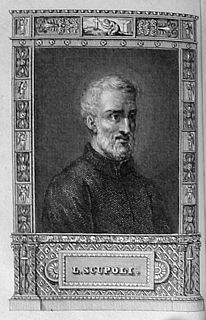A Quote by William Hazlitt
No wise man can have a contempt for the prejudices of others; and he should even stand in a certain awe of his own, as if they were aged parents and monitors. They may in the end prove wiser than he.
Related Quotes
No man is so foolish but may give another good counsel sometimes; and no man is so wise, but may easily err, if he will take no others counsel but his own. But very few men are wise by their own counsel; or learned by their own teaching. For he that was only taught by himself had a fool to his master.
The wise man does nothing but what can be done openly and without falseness, nor does he do anything whereby he may involve himself in any wrong-doing, even where he may escape notice. For he is guilty in his own eyes before being so in the eyes of others; and the publicity of his crime does not bring him more shame than his own consciousness of it.
It is ignorance that is at times incomprehensible to the wise; for instance, he may not see 'the positive person' or 'the negative person' in a black and white way as many people do. A wise man may not understand it because, as a catalyst of wisdom, but not wise in his own eyes, even he can learn from and give back to fools. To think that an individual has absolutely nothing to offer to the table is counter-intuitively what the wise man considers to be 'the ignorance of hopelessness'.
As every writer has his use, every writer ought to have his patrons; and since no man, however high he may now stand, can be certain that he shall not be soon thrown down from his elevation by criticism or caprice, the common interest of learning requires that her sons should cease from intestine hostilities, and, instead of sacrificing each other to malice and contempt, endeavour to avert persecution from the meanest of their fraternity.
The so-called godly man may be more likely to do serious wrong than a man who deeply questions himself. The 'godly man' often zealously follows religious precepts that, in the end, justify an unjust injury to others, while the questioning man, addressing his own conscience, may have the better chance to consider all the circumstances and come to the just decision.
[Heraclitus] did not require humans or their sort of knowledge, since everything into which one may inquire he despises [as being] in contrast [to his own] inward-turning wisdom. [To him] all learning from others is a sign of nonwisdom, because the wise man focuses his vision on his own intelligence.
The man who has a certain religious belief and fears to discuss it, lest it may be proved wrong, is not loyal to his belief, he has but a coward's faithfulness to his prejudices. If he were a lover of truth, he would be willing at any moment to surrender his belief for a higher, better, and truer faith.
... you must hasten to oppose pernicious pride of mind, before it penetrates into the marrow of your bones. Resist it, curb the quickness of your mind and humbly subject your opinion to the opinions of others. Be a fool for the love of God, if you wish to be wiser than Solomon: 'If any man among you seem to be wise in this world, let him become a fool, that he may be wise' (I Cor. 3:18).
We may gamble on outsmarting the law; we may even gamble on the leniency of man and the mercy of God-but no man ever won a gamble with his own conscience. Even should he think he has beaten his conscience into submission, his misdeeds still leave their mark upon him. Anyone who gambles against this fact has already lost his gamble.




































